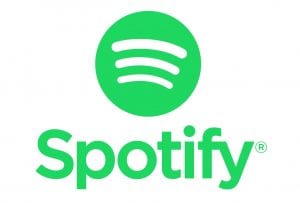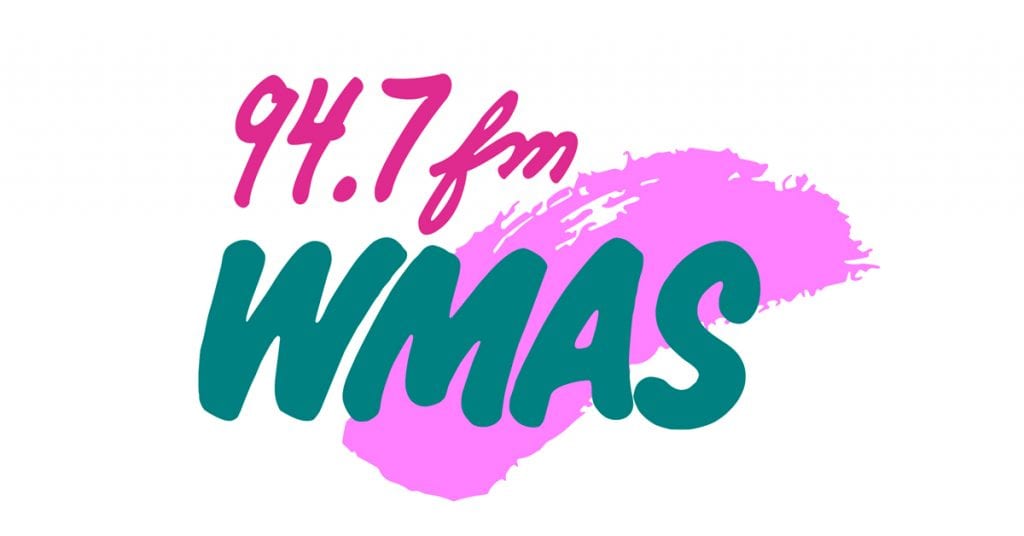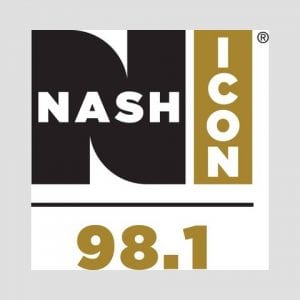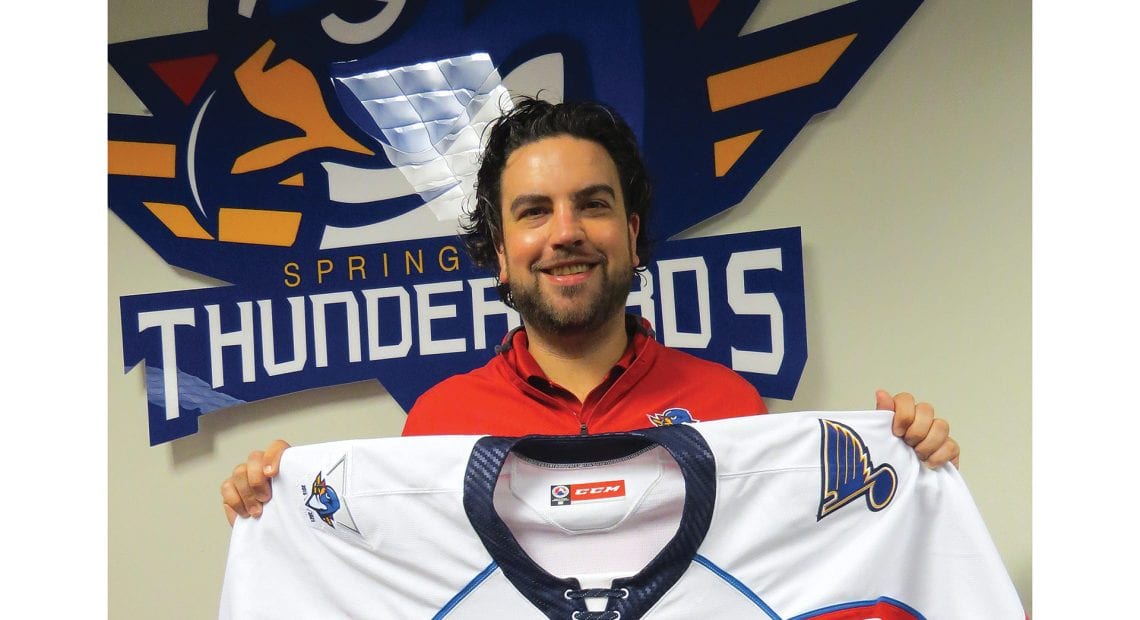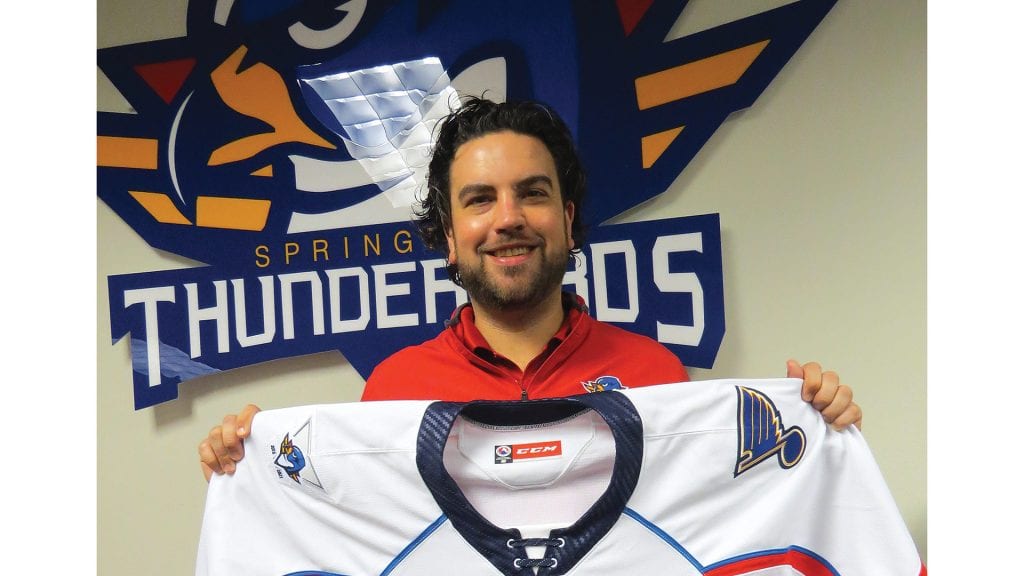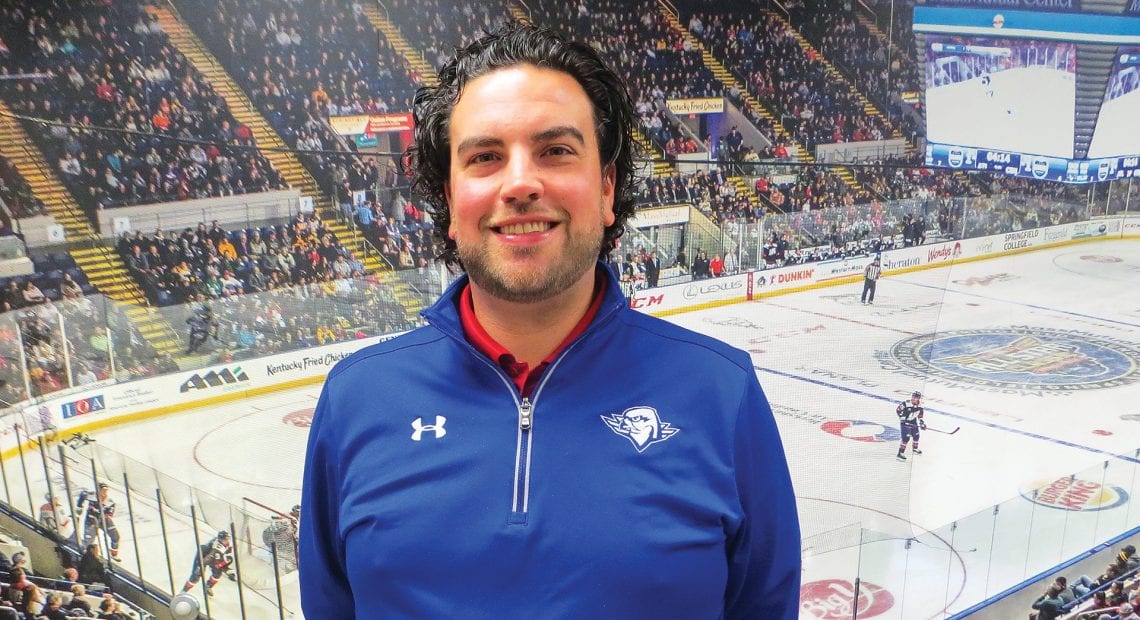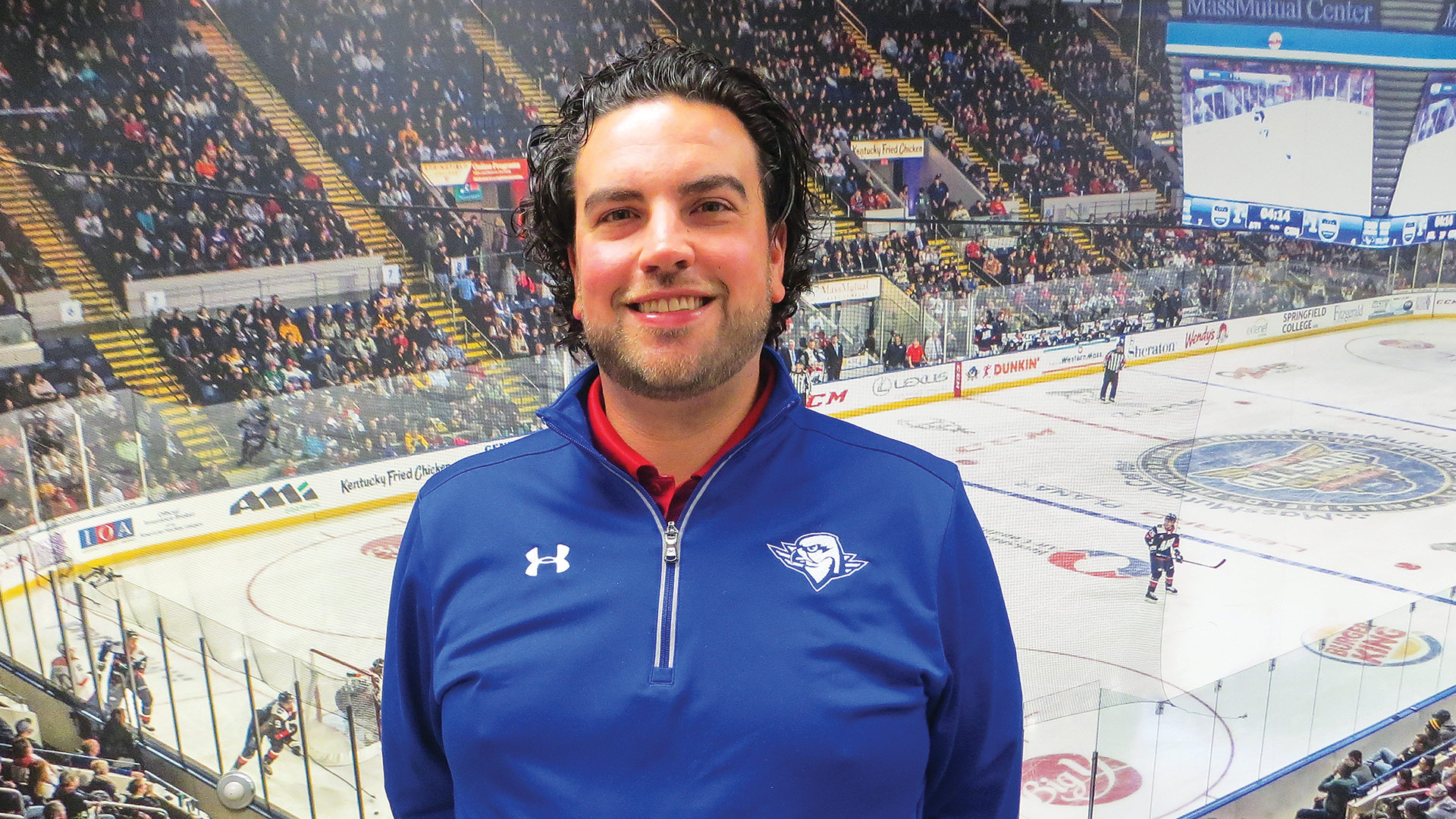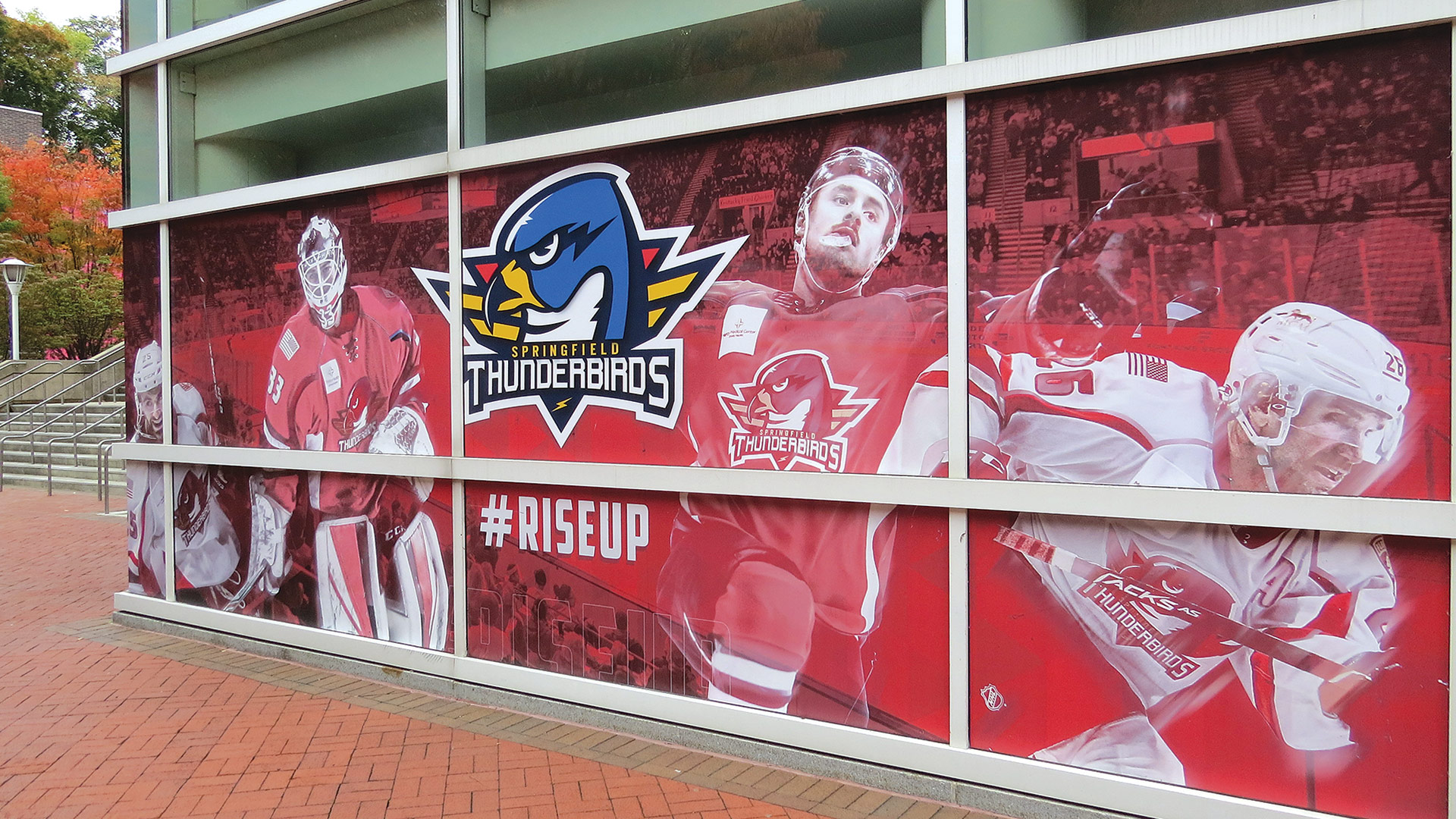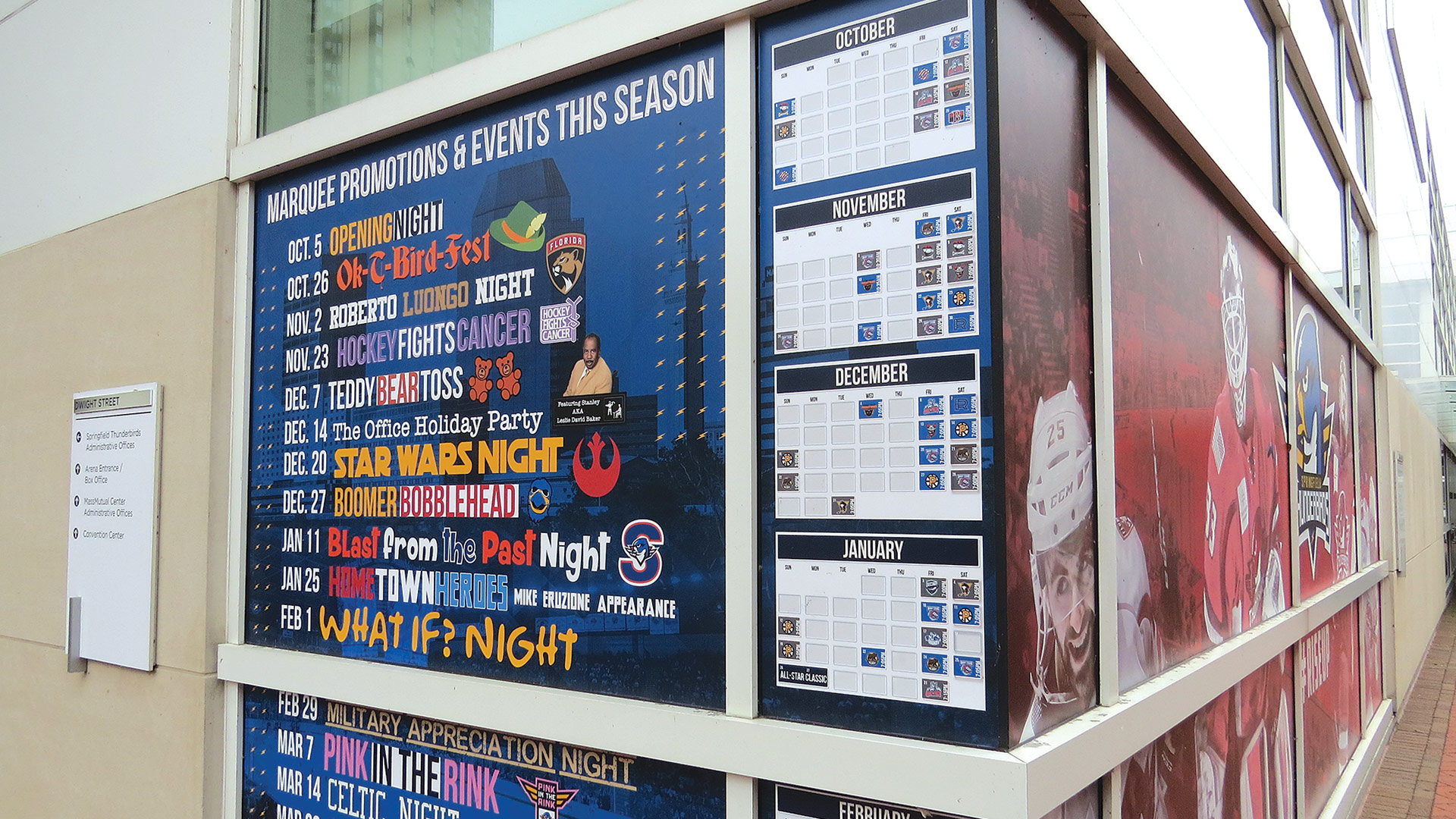High Flight
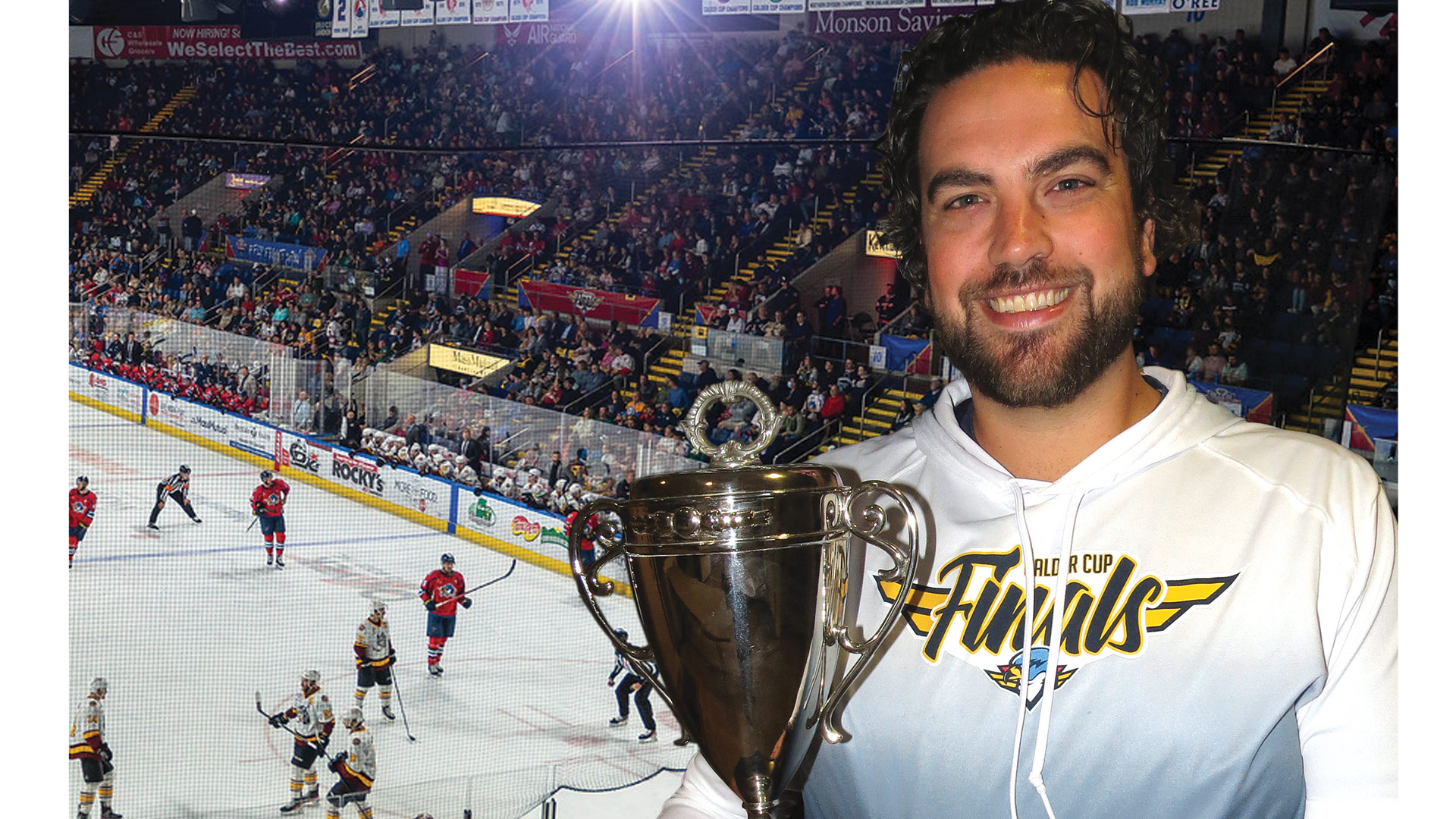
Nate Costa with the AHL’s Eastern Conference Championship trophy and his AHL Finals jersey.
The Springfield Thunderbirds soared to new heights during the 2021-22 season, making the playoffs for the first time in their existence and taking Springfield to the championship round of the playoffs for the first time in three decades. As the franchise enters what will be an abbreviated offseason, it does so with momentum and a championship-caliber team to sell to a more engaged fan base, and management is laser-focused on taking full advantage of this opportunity.
Within the pantheon of ‘good problems to have,’ specifically in the world of professional sports, it doesn’t get much better than this. Although, yes, it does get a little better.
Indeed, after a lengthy playoff run that took the team to within a few wins of a Calder Cup, the Springfield Thunderbirds are looking at a short offseason — as in two full months shorter than the norm.
That’s a problem, said team President Nate Costa, because there’s a lot to do before the 2022-23 season starts, from season-ticket sales to scheduling promotions to lining up special guests and programs. But it’s a good problem, obviously, because of everything that happened during those aforementioned two months and what they mean to this franchise, and this brand, moving forward.
What happened, said Costa, is that the Thunderbirds, the franchise that brought pro hockey back to Springfield in 2016 after a brief time without a team, became “the talk of the town” during that playoff run. Elaborating, he told BusinessWest that the team took a huge leap forward in terms of visibility, prominence, and, yes, relevance. It always had a core of solid fans, but it hadn’t truly arrived. Until this spring.
“It all came to fruition when the playoff run happened,” he told BusinessWest. “All the stuff we thought could happen — that we would be the talk of the town, that we could be the focal point of downtown Springfield … it all came together. And now, it’s about trying to capture some of that momentum and keep things moving.”
The team took this huge step forward in large part because the team seized a huge opportunity during the playoffs to capitalize on the 11 extra games and the excitement generated with each passing round by promoting the brand in every way imaginable, from ceremonial posters and rally towels handed out at the home games to extensive social-media coverage of the team’s run to the Eastern Conference title and the brink of a Calder Cup.
The challenge — and huge opportunity — moving forward, as Costa said, is to build off this hard-earned momentum, and this is what management will be doing in this abbreviated offseason.
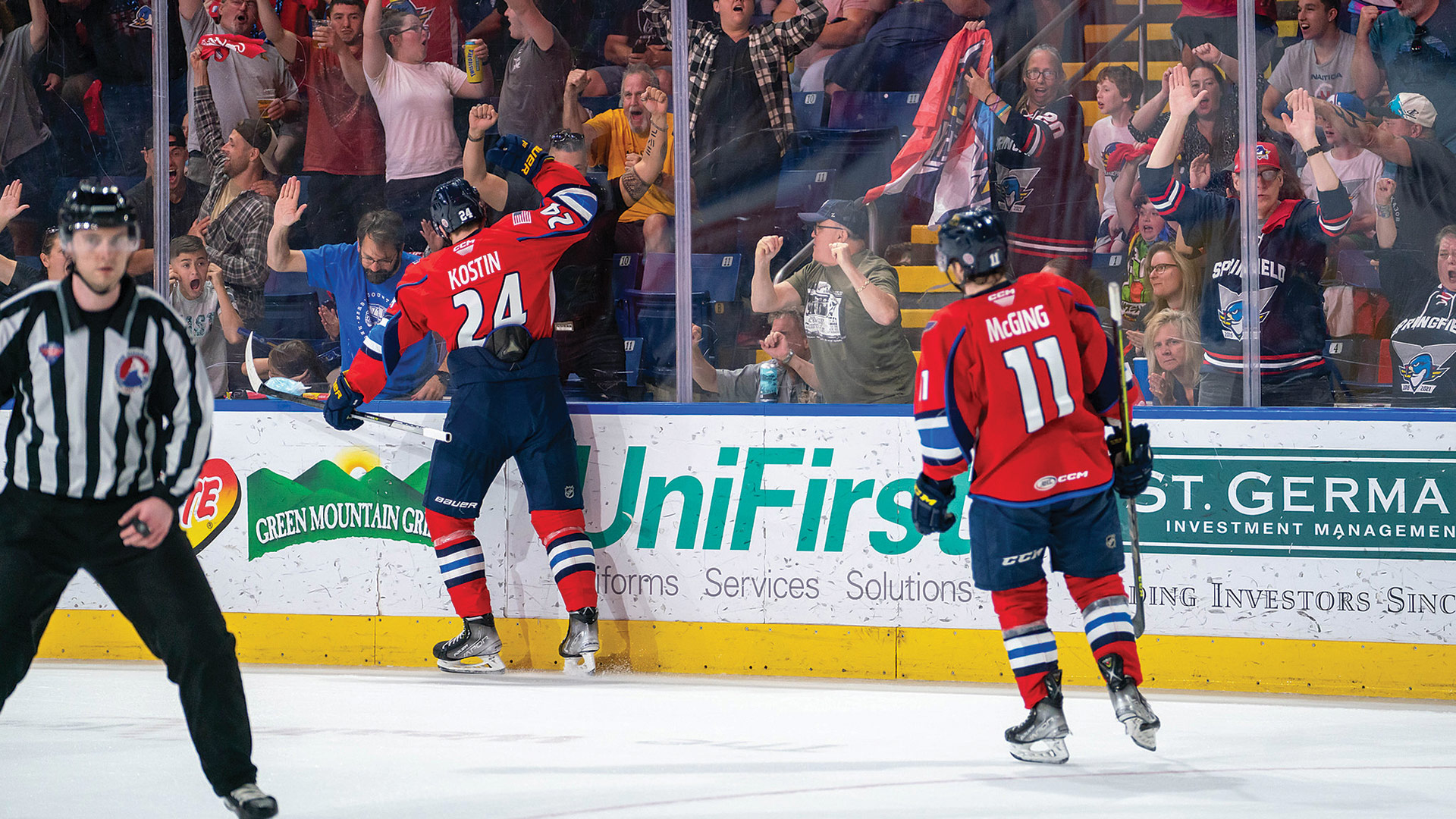
The extended playoff run gives the Thunderbirds a short offseason, but in the larger scheme of things, that’s a good problem to have.
“All the positives around the business now, and all the stuff that comes from having a nice run like this is … huge, and it’s something we’ve never had before — we’ve never even made the playoffs before in my time with the Thunderbirds,” he noted. “We’re in a good position to take advantage because we’ve laid a really solid foundation that we can build on.”
Looking back on a memorable season, one that earned the T-Birds Team of the Year honors (the President’s Award) from the AHL, Costa said it happened because many pieces fell in place and because all the various players — from the local ownership group that provided the needed resources to a parent team, the St. Louis Blues, that “understands the value of winning at this level,” as he put it, to the players and management — did their respective jobs.
Overall, he said the deep playoff run was and is validation of everything that management and ownership have done to not only bring hockey back to Springfield but to generate interest in hockey and build a successful brand.
“It all came to fruition when the playoff run happened. All the stuff we thought could happen — that we would be the talk of the town, that we could be the focal point of downtown Springfield … it all came together. And now, it’s about trying to capture some of that momentum and keep things moving.”
“It’s been a huge validation, not only for me personally, but for the owners, who stepped up for the city, made a big investment, and did it the right way,” he said. “To be able to get the Eastern Conference championship and do something that hadn’t been done in 30 years … that’s pretty special.
“Getting to the playoffs is really important to the development of these players; these guys are getting extra games, they’re getting extra high-pressure games … that all means a lot to development,” he added. “The really cool thing is that there is lot of continuity between last year’s team and this year’s team, which is a testament to the Blues — they’re bringing back a lot of guys.”
For this issue, BusinessWest talked with Costa about the season — and postseason — that was, how the team made the most of that unique opportunity, and how it intends to build on all that was gained during the 2022-23 season and beyond.
Banner Year
One of the many items on the to-do list for Costa and his team this offseason is to order a ‘2022 Eastern Conference Champions’ banner to hang in the rafters at the soon-to-be-renamed MassMutual Center.
Costa said research revealed the name of a company in Waltham that makes such banners for a number of professional sports teams, and preliminary talks with that outfit will commence soon.

While the playoffs are not a ticket to guaranteed financial success, the Thunderbirds fared well, selling out each of its three games in the Finals.
“We want to do it right — to go the company that does this for everyone,” he said. “I want to get their input — I want to get some direction on how to design this the right way, because it’s going to live in our rafters for a long time.”
Finding a company to make a banner for the rafters was about the last thing on anyone’s mind during a very challenging start to the 2021-22 season, said Costa, adding that this past year was a stern test on many different levels.
For starters, the team was starting up again after deciding not to play during the 2020-21 season, when COVID was at its height and the AHL was playing a shorter schedule with a host of restrictions and, for the most part, no fans. This meant assembling a team of employees (with many returnees from before COVID) and re-engaging with a fan base.
But mostly, it meant dealing with a pandemic that kept coming in waves and was still very much a disruptive force, especially for businesses dependent on bringing large numbers of people together in closed spaces.
“All the positives around the business now, and all the stuff that comes from having a nice run like this is … huge, and it’s something we’ve never had before — we’ve never even made the playoffs before in my time with the Thunderbirds.”
“It’s been a long year,” said Costa, putting heavy emphasis on that word ‘long.’ “We dealt with a lot of ups and downs; there were a lot of challenges. Groups were essentially non-existent because schools weren’t doing anything, and we were living in a real COVID world for half the year. January and February were some dark months where we still wearing masks and there were potential capacity limitations … we were dealing with that all year, and it was a really taxing and challenging environment to work through. It was exhausting.”
While dealing with these challenges, the Thunderbirds, thanks to a solid mix of established veterans and emerging prospects, established themselves as not only a playoff contender (23 of the league’s 31 teams would qualify for postseason play for the 2021-22 season following some changes to the format), but as a frontrunner. Indeed, the team forged its way near the top of the Atlantic Division of the Eastern Conference and stayed there for the bulk of the season.
By the spring, the team’s consistently solid play made a playoff birth likely, and then inevitable, giving Costa and his team a chance to start planning — as much as any organization can plan a playoff run, even with a bye in the first round, which the T-Birds earned by finishing second overall in the Atlantic Division.
Indeed, the playoffs are to be taken one series — and, in many respects, one game — at a time, he said, adding that, while a playoff run can benefit a team’s bottom line, there are many additional expenses, especially travel and logistics, and some challenges when it comes to ticket sales, including the loss of all-important group sales.
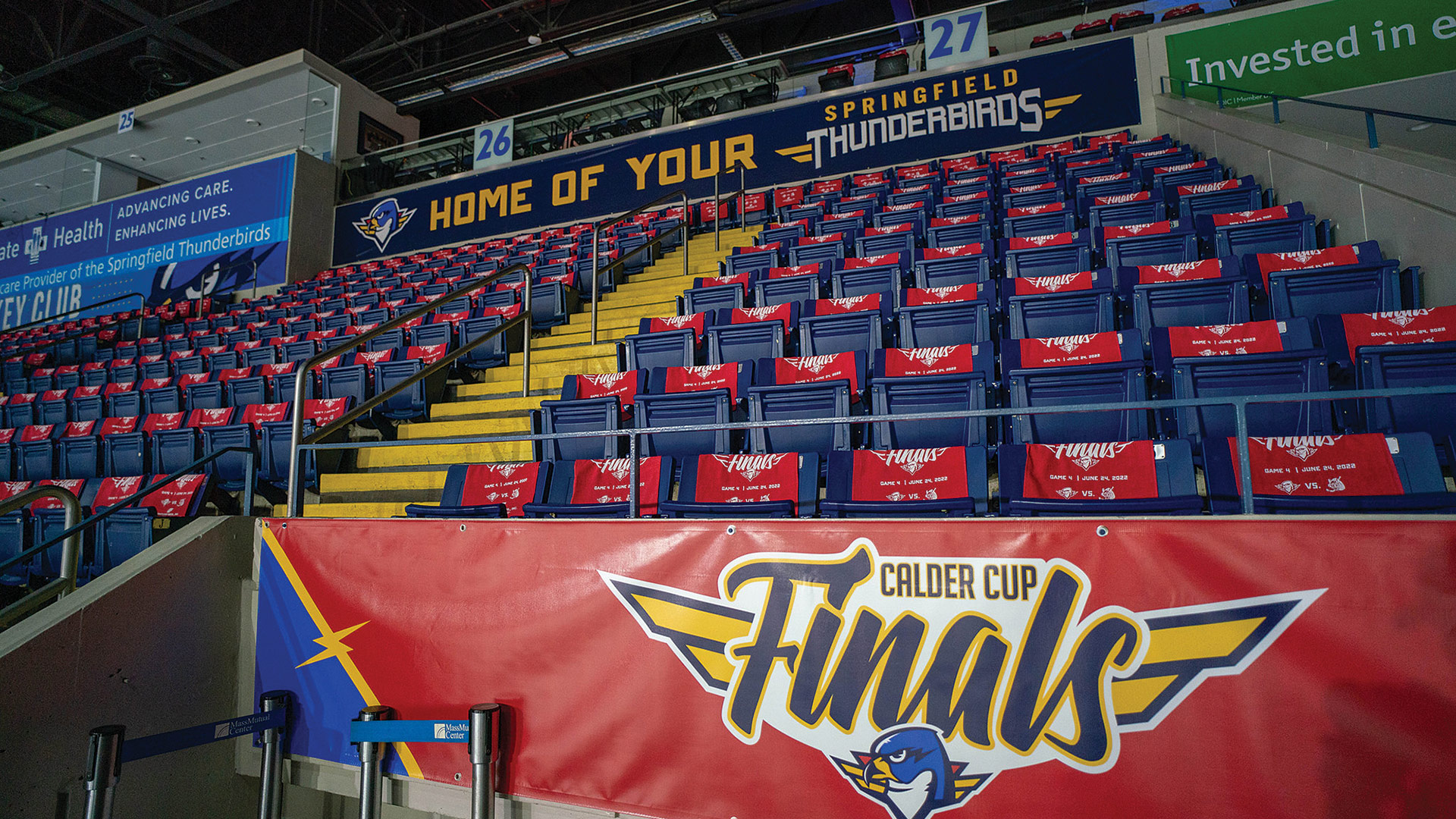
Nate Costa says one of the team’s goals was to make the playoff experience different for the fans and the players, with rally towels and banners like this one.
“Every series is like a mini-season, the way we market it and the way you go through the process, because you don’t know what’s going to happen; it’s all dependent on your performance on the ice. At the beginning of the run, we wanted it to make it feel different and feel separate from the regular season, and so, from a marketing perspective, we put together an entire campaign around the playoffs,” Costa explained, including a hashtag slogan — Fly, Fight, Win! — that was a nod to the Air Force. “It was completely different from what our regular-season marketing campaign was.”
Winning Formula
Such marketing efforts included everything from lawn signs to new signage around the arena to stickers placed in the windows of downtown businesses, as well as that hashtag. They were a necessary expense, but ones with a very uncertain ROI.
“You can do all that planning and do all those things, and then get knocked out in the first round,” Costa explained. “We were really fortunate that we got to go all the way to the end, but every round you have to redo the schedule, get tickets up on sale, set the pricing on tickets, get the tickets sold, getting marketing in place and buying the advertising — and it all happens within a week.”
“The other blessing about going so late into the playoffs is that it’s only three months from the end of our year to the start of the new year. I think there’s still going to be a lot of pent-up excitement, especially with the number of guys we have coming back and the continuity with raising the banner and all that.”
And there are no guarantees that a playoff run will be a financial success, he said, noting that some teams in the playoffs — including the Chicago Wolves, who triumphed over the T-Birds in the Calder Cup Finals in five games — played before crowds that were far from sellouts, and one of the playoff teams from the Western Conference, Stockton, was averaging just over 1,000 per game.
“At this level, though tickets were in demand, you still have to grind, and you still have to have relationships with people in the region to try to move tickets,” Costa said. “And if you’re not prepared to do that at this level, you’re not going to succeed.
“The first two rounds are really challenging, and teams traditionally break even or lose,” he explained. “But you maximize those opportunities to build momentum for future rounds, if you can get there, and that’s what we did.”
Overall, the Thunderbirds did well with playoff ticket sales, he went on, noting that each of the three Finals games hosted in Springfield was a sellout (6,793 seats), and the earlier rounds averaged more than 5,000, with some games coming on weekdays and even Mondays.
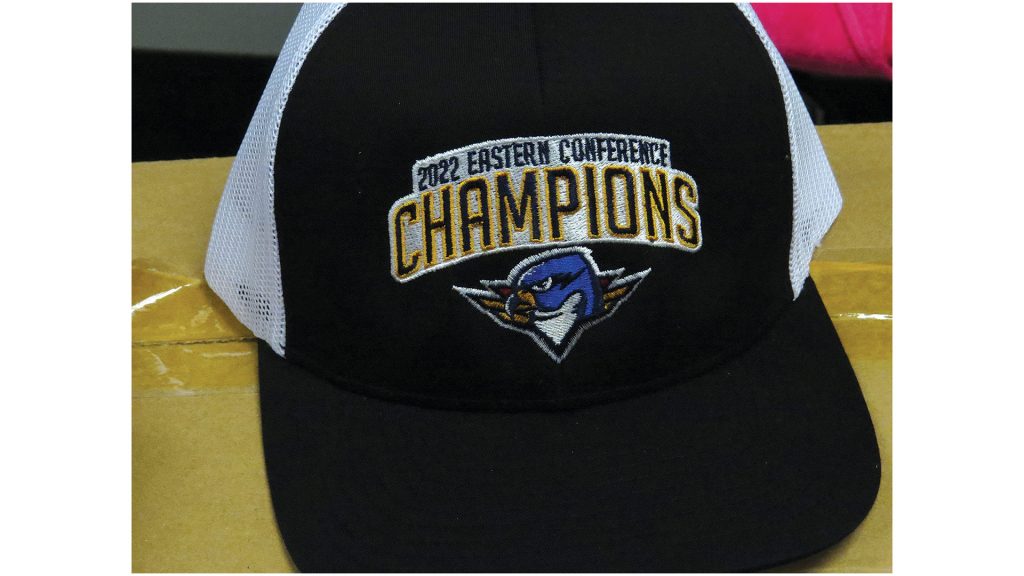
There are many benefits to an extended playoff run, including merchandise, such as this ‘Eastern Conference Champions’ hat.
But beyond ticket sales, Costa said he saw the playoffs as an opportunity to build the Thunderbirds brand, and he invested heavily in many different initiatives.
For starters, he made sure all three of the team’s media members went to every playoff series to cover the Thunderbirds for social media.
“From the beginning, I wanted to feel like a pro hockey team, and that means getting photography, video, and social media on the road,” he said. “That’s what separates us from a lot of AHL teams; not many teams in this league are willing to invest in this stuff. But I think it’s important for perception of the brand.
“If you can do the little things like that, if you can let the players feel like real pros, then the fans, by extension, the people who are following your brand, can also feel that, and that gives you a lot to sell,” he went on. “The playoffs, to me, was all about maximizing the opportunity.”
Setting Sale
As he talked with BusinessWest, Costa was wearing a ‘Calder Cup Finals’ pullover. At one point in the proceedings, he paused to show off the AHL’s Eastern Conference Championship trophy, named for former AHL President Richard Canning.
These are just a few of the symbolic ways in which he and his team are still living in the moment, if you will.
But in most other ways, the team is putting its deep playoff run behind it and moving onto next season. Indeed, Costa made a point of referring to the 2021-22 campaign as ‘last season,’ and to 2022-23 as ‘this season.’
Which brought him back to the ‘good problem to have’ he mentioned at the top.
“It’s a blessing and a curse,” he said of the shortened offseason, noting that it’s too short for everyone involved — players, many of whom will be back with the team, as well as coaches and administrators.
But from a business perspective, and most all other perspectives, it certainly beats the alternative — another season with no playoffs.
“I’m going to take the playoff run and everything that came with it over a longer offseason,” he said, adding quickly that some, but not all, of the page-turning work that comes after a year’s final game is over had to wait until the playoff run ended.
The mission now is to make up for that lost time, and Costa and his team are now forging ahead with the plans for 2022-23. The schedule has been officially released, which means the team can now start slotting in everything from annual events to who will sing the national anthem at each game.
And, as he mentioned, there is momentum to build on, and it is already showing up in season-ticket sales; by mid-July, the team had more than 1,150 season tickets sold for the coming season, a jump of nearly 100 from last year, with more than 200 still to renew and a projected 80% of those coming back. That means the team is looking at perhaps a 30% increase in season-ticket volume.
And that should be just one area of growth, he said, adding that, overall, a short offseason isn’t beneficial only because of what it means about last season.
“The other blessing about going so late into the playoffs is that it’s only three months from the end of our year to the start of the new year,” Costa explained. “I think there’s still going to be a lot of pent-up excitement, especially with the number of guys we have coming back and the continuity with raising the banner and all that.
“Early on in the year is typically really hard for us,” he went on, adding that the team is competing with pro and college football and other sports as well. “But coming out of this, I think we’re going to have a lot of momentum. We don’t really hit our stride typically on the business side with big crowds until December, when people really start to turn the page and think hockey. This will help us early in the season; we’re going to come out of the gates strong.”
As the team continues its budgeting for the coming year, it will be aggressive as it sets goals for ticket sales and revenue because of last year’s success, Costa said, but it will also look for new areas in which to grow and improve, on both the revenue and expense sides.
“It’s just the maturation of the business,” he explained. “We’re in a healthy place now, and it’s all about how we take advantage of our momentum. When we took this over, it was obviously exciting, but there wasn’t a ton of value built up in the brand, and now we’ve gotten to the point where we have some value built into the brand, and we have to take advantage of that.
“Now, we have a winning team to talk about and a championship-caliber team,” he went on. “And that just adds to everything that we’re doing, and it makes our job easier.”
Soar Subject
Summing up the playoff run that was, from both a personal and professional perspective, Costa said it was, in a word, “special.”
“It was one of the coolest experiences I’ve had in my career,” he said, noting that the team won the Eastern Conference title exactly six years from the day the new franchise was announced. “I’ve been in pro sports for more than 15 years now and had never gotten to that point — it was fulfilling on many levels.
“And that’s one of the things I hammered home with our staff. I said, ‘I know it’s exhausting, and I know we’re working extra games, but this doesn’t happen every year,’” he went on, adding that, when it does happen, a team has to take full advantage of the moment — and the momentum created by that moment.
And he and his team are fully committed to doing just that.
George O’Brien can be reached at [email protected]



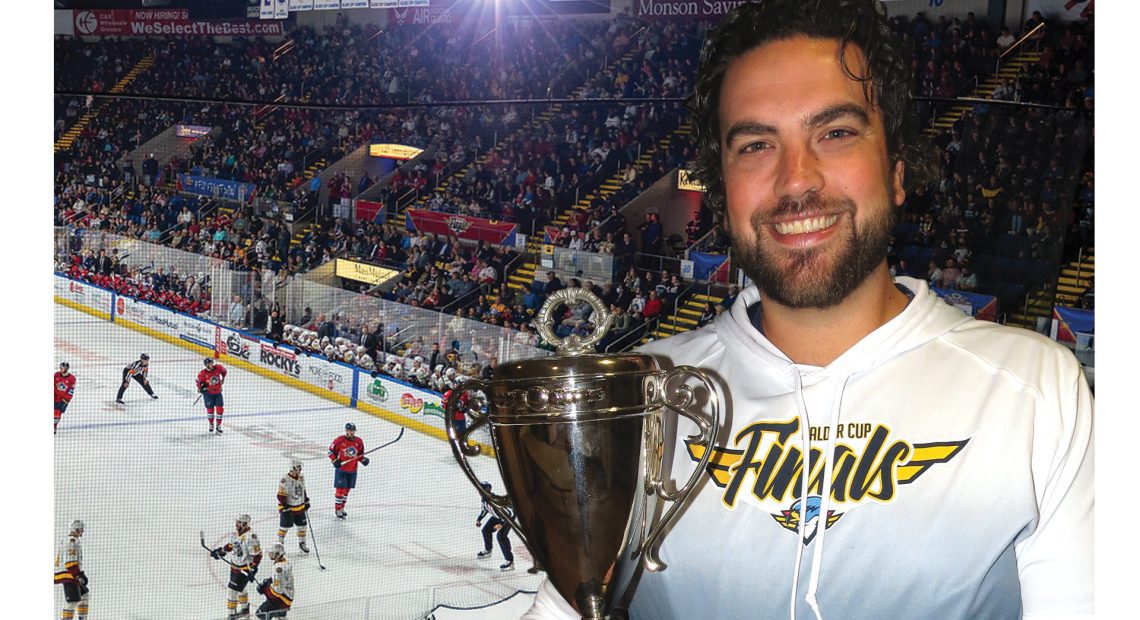
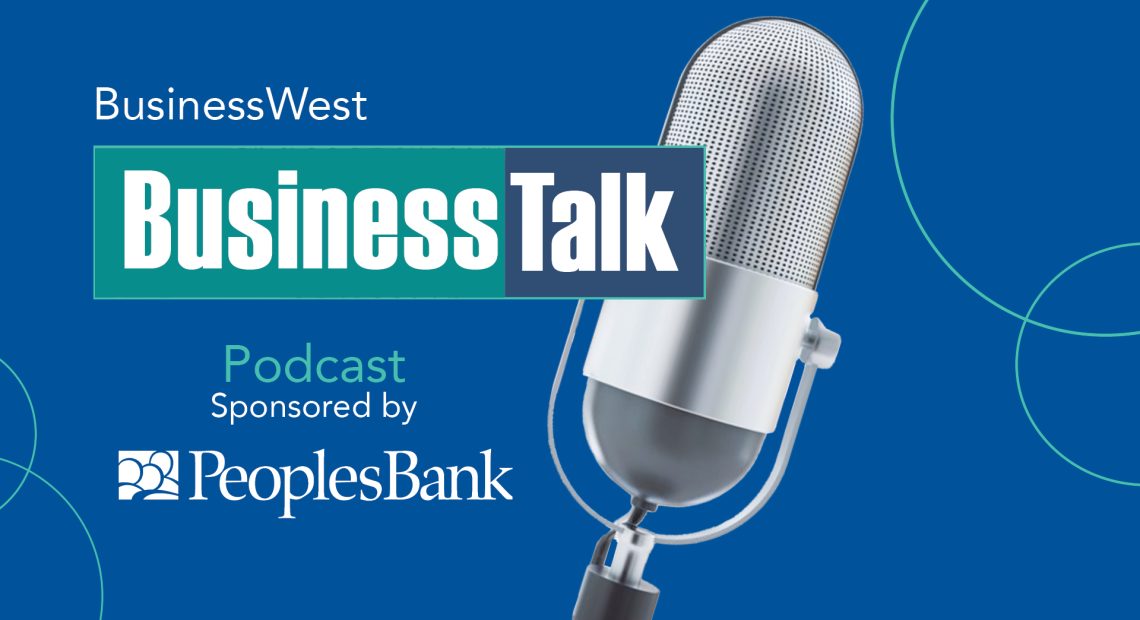
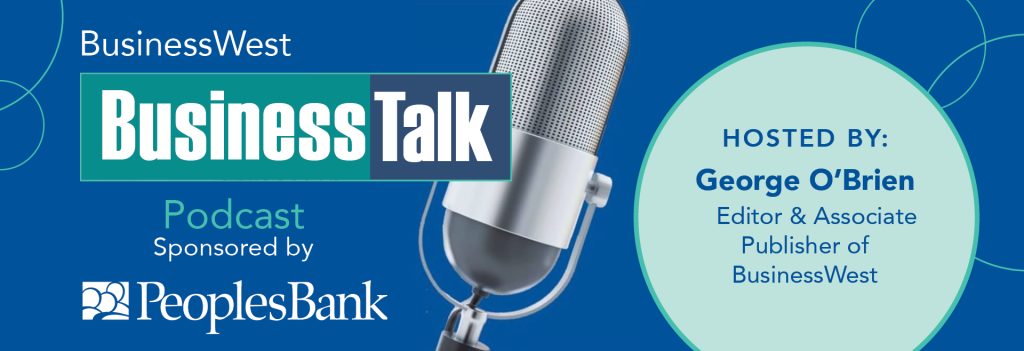 We are excited to announce that BusinessWest, in partnership with Living Local, has launched a new podcast series, BusinessTalk. Each episode will feature in-depth interviews and discussions with local industry leaders, providing thoughtful perspectives on the Western Massachuetts economy and the many business ventures that keep it running during these challenging times.
We are excited to announce that BusinessWest, in partnership with Living Local, has launched a new podcast series, BusinessTalk. Each episode will feature in-depth interviews and discussions with local industry leaders, providing thoughtful perspectives on the Western Massachuetts economy and the many business ventures that keep it running during these challenging times.

